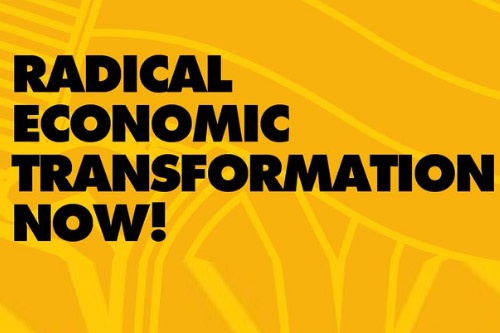The much-awaited maiden budget by Finance Minister Tito Mboweni has come and gone, and actually, it was not all doom and gloom.
Maybe Mboweni understood the mood of the country when he decided to introduce lower tax increases on alcohol and tobacco this year, and although there are now three layers in the fuel levy the increase was also lower than last year.
Last year National Treasury expected revenue of R1.3 billion from sin taxes, this year it is R1 billion, and last year the increase in the fuel levy was a whopping 55c/l compared to 29c/l this year, even with the 9c/l from the newly introduced carbon tax included.
There have been no increases in the so-called wealth taxes (capital gains tax, dividend withholding taxes, and donations tax) and treasury is actually rethinking some of its previous controversial proposals – before implementing them.
Keith Engel, CEO of the South African Institute of Tax Professionals, says Treasury was trying to do minimal damage – there were no tax increases for individuals or companies. “It was the least bad choice they could make.”
They understood that by increasing taxes they were undermining growth. They did, however, fill their shortfall by not making provision for inflation in the tax brackets to prevent bracket creep – saving government R12.8 billion to make up for the additional R15 billion shortfall in tax revenue.
Industry players have welcomed the rethink of the proposed amendment to the tax treatment of collective investment schemes (also known as unit trusts).
Treasury said in the 2019 Budget Review it needed more time to work with industry to find solutions that will not “negatively affect” the relevant groups.
Denver Keswell, Senior Legal Advisor at Nedgroup Investments, says they are certainly encouraged by this development. Treasury has acknowledged the industry’s concerns that the change in the taxation for collective investment schemes (CIS), as previously proposed, would cause more hardship than positives.
Treasury proposed the amendments last year, following concerns that asset managers were actively trading in the underlying assets of collective investment schemes.
CIS are considered long term, passive investments and gains on the sale of units by individual investors are taxed as capital gains and not as income in the hands of the investors.
However, with the proposed changes distributions to unitholders derived from the disposal of financial instruments within 12 months of their acquisition would be classified as income and taxed at the unit holder’s marginal tax rate.
This would have a major impact on the attractiveness of collective investment schemes as savings vehicles.
Keswell said industry also consulted with treasury on the practical implications of the proposals. “It will be an absolute administrative nightmare just to figure out which portion (of a financial instrument) was bought within a year and which is older than one year.”
Treasury further proposed the first-in-first-out method. Keswell explained that where a CIS acquired financial instruments at various dates, the CIS will be deemed to have disposed of financial instruments acquired first. This also comes with its own issues and possible unintended consequences for investors says Keswell.
Another bit of “good news” in the budget is the proposal to address the hardships caused for surviving spouses who are often liable for tax on income in their personal capacity as well as any spousal pension received.
Treasury said in Annexure C of the Budget Review surviving spouses may be entitled to a monthly spousal pension from the pension fund of the deceased spouse.
However, if the surviving spouse receives a salary or other income, the monthly amount is added to that income and the tax liability often exceeds the amount of employee’s tax withheld by the employer and the pension fund.
“In most cases, the surviving spouse does not foresee this additional tax liability and does not save money to settle the liability. This creates a cash flow burden and a tax debt for the surviving spouse,” Treasury said.
One of the proposals by Treasury is to withhold employee’s tax at a specified flat rate. However, Keswell said they would be watching developments closely to ensure that different interpretations do not lead to unintended tax consequences.
Marc Sevitz, director and CFO at TaxTim, says there has been some balance brought into the budget, despite it being an election year and with the Eskom crisis looming large.
The fact that a new commissioner for the South African Revenue Service is expected to be announced soon will bring stability at the tax collecting agency.
Sevitz says there has to be an improvement on the information technology side to encourage taxpayer compliance and increase collections.
Engel says matching the revenue earned from government contracts to the tax returns of the winning contractors are certainly low hanging fruits to up revenue collections in the short term.
He did express disappointment about the absence of any announcements on the powers of the Tax Ombud. Engel said greater independence and freedom to investigate systemic matters must be afforded to the Office of the Tax Ombud. He would also like to see greater involvement of the Ombud in overseeing or reviewing the tax legislative process.




